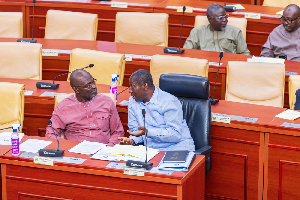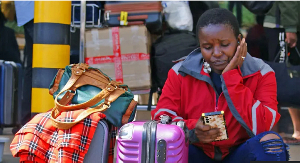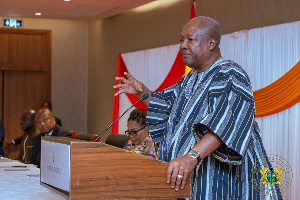Business News of Friday, 25 October 2013
Source: GNA
Illegal miners posing challenge to cocoa sector
Mr Anthony Fofie, Chief Executive of Ghana Cocoa Board (Cocobod) on Thursday said activities of illegal miners is taking a serious toll on cocoa production. He said illegal miners have invaded between 1.5 million hectares and 1.7 million hectares of cocoa farm lands, destroying cocoa trees to explore for gold. Mr Fofie said at present, Ghana‘s cocoa production stands at 830,000 tonnes, out of which two-thirds is exported and one- third processed for domestic consumption.
He said Ghana is currently producing 450 kilograms per hectare and is expecting to increase production to 1,000 kilograms per hectare through pragmatic and strategic innovations. Mr Fofie, was addressing stakeholders’ workshop on “Ghana Cocoa Platform (GCP)” and Ghana Cocoa Sector Scenario Planning Exercise in Accra, said.
He said GCP is to serve as a mechanism for multi-stakeholders dialogue to effectively address key issues pertaining to cocoa production. The three-year GCP would be funded by donor agencies and Cocobod at a cost of 1.2 million dollars, to look into the priority areas of cocoa production and management of quality.
Mr Fofie said the cocoa sector is faced with climate change and disease and pest control challenges. “Climate change is a major cause of the limitation in cocoa production in recent time and it is also affecting the size and quality of the cocoa beans,” he said.
Mrs Rita Owusu-Amankwah, National Coordinator of GCP, said the platform is a good opportunity to enhance focused dialogue, increased stakeholders’ participation and coordinated action across the sectors.
She said platform would organise series of plenary meetings for stakeholders on regular basis, to be supported by a combination of technical papers and technical committees build around specific areas for interventions.
She said discussions at the platform level would lead to a joint documented consensus over the major positive and negative impacts of cocoa production. It would review the best practices to improve environmental and social performance that are better adapted to the reality of Ghana and make a set of recommendations for policy reforms and joint planning by stakeholders.
The National Coordinator said the platform would ensure that enhanced performance of the commodity value chain is achieved while lessons are incorporated into guide future interventions. Mrs Owusu-Amankwah said a global knowledge and coordination function would also be implemented, in order to enable the transfer of effective approaches and lessons learned across countries.
Mr E.T. Quartey, Director of Research, Monitoring and Evaluation at the Ghana Cocoa Board, said the platform should serve as parliament where representatives of the various groups in the cocoa production value chain participate to take decisions to boost production.
He advocated improvement in the extension services to farmers in the cocoa sector Nana Kofi Obeng, a representative of cocoa farmers at the forum appealed to the Cocobod to pay regular visits to cocoa farms in the communities to educate farmers on modern production practices, as well as detect disease infestation on time.












